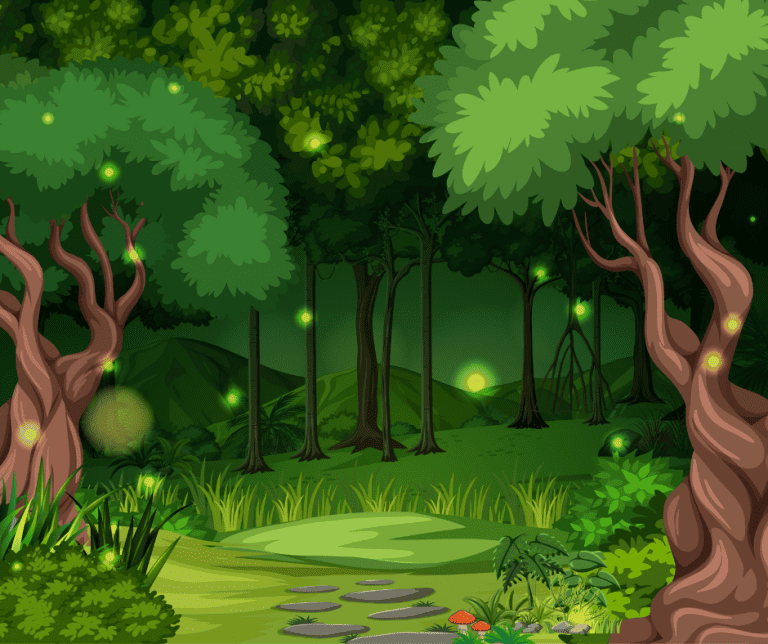The man vs. nature conflict has been around for millennia.
From fairytales where protagonists get lost in an enchanted forest to epic stories of heroes who climb up mountains to defeat a monster, humans have always debated the contrast between culture and nature.
Literature is a brilliant medium through which these discussions have taken place time and time again. Brave New World, Dune, even The Hunger Games – these works look at the man vs. nature conflict through a critical lens, examining what it means to be a human who is simultaneously a participant and an outsider to the natural world.
How can you use this conflict in your writing? And why does it make for a great conflict in the first place?
Let’s dive in.
Man vs. Nature Conflict: What Is It?
This conflict is exactly what it says on the label: it’s when the protagonist stands in opposition to natural forces, and the battle between them makes for a vital plot point.
Both sides can be portrayed as the “good guy” or the “bad guy” depending on the angle with which you’re approaching the story. What’s more, there are books where the opposite forces are so complex and ambiguous that the conflict itself gains a new intricate dimension.
Let’s take The Hunger Games as an example. When Katniss Everdeen fights to the death in an arena that resembles a forest, surviving thirst, hunger, venom, and fire, she is in direct opposition to nature. Katniss is “a good guy”. Nature not so much.
However, nature is also her place of peace and freedom back in District 12 where she’s from. The natural world in the arena of the Hunger Games is, in fact, not natural at all – it is a simulation created by humans who have malicious intentions both toward nature and the tributes in the arena. What’s more, Katniss often finds herself in situations where her intimate knowledge of nature helps her survive.
In that sense, nature is good, while the humans in charge of the Hunger Games take on the role of the villain.
As you can see, the man vs. nature conflict can get pretty complicated. What it all boils down to, however, is a conflict that helps the reader penetrate deeper layers of the book’s meaning and think critically about a human’s role in the natural world.
Conflict, Theme, Tension, Motivation
How does conflict differ from a theme? And what are tension and motivation for?
Let’s unpack the four terms:
Conflict is a clash of opposing forces, creating a problem for the character. Generally speaking, there are at least six major literary conflicts:
- Character vs. Nature (Brave New World by Alex Huxley)
- Character vs. Character (Othello by William Shakespeare)
- Character vs. Technology (R.U.R. by Karel Capek)
- Character vs. Society (1984 by George Orwell)
- Character vs. Supernatural (Harry Potter by J.K. Rowling)
- Character vs. Self (The Goldfinch by Donna Tartt)
Theme is the underlying meaning of a story. For example, the power of love and friendship or the perseverance of the human spirit are themes. Both these themes could contain the man vs. nature conflict.
Tension is the expectation that something (usually bad) is going to happen. Thanks to tension, the reader is kept on their toes before the plot gives rise to direct conflict.
Character motivation is what spurs the character into action. While external circumstances can force a character to act as well (for example, they may have to find shelter before the sun sets), every character should also have intrinsic motivations that give more depth and meaning to their personality.
Why Does Man vs. Nature Make for a Powerful Conflict?
Ever since the dawn of time, we’ve existed in both harmony and conflict with nature.
On the one hand, nature provides us with everything we need in order to survive and thrive. On the other, it also wrecks our homes in storms, endangers us during volcano eruptions and earthquakes, and often acts in unpredictable ways that lead to our crops failing.
What’s more, technology and urbanization have made it so that we’re becoming increasingly disconnected from the natural world.
Exploring these ideas through literature is a powerful way to discuss our relationship with natural forces, share criticism or possible solutions, and reflect on one of the most important questions of our modern society: How can culture and nature coexist in a sustainable way?
You can explore this by analyzing what happens if:
- Humans attempt to master nature (e.g., Brave New World where humans are highly disconnected from the natural world and use it as a form of entertainment)
- Nature attempts to master humans (e.g., The Last of Us where a “zombie fungus” takes over the Earth)
- Humans are forced to survive in harsh natural conditions (e.g., The Hunger Games)
- Human activity affects nature, which in turn forces people to migrate or enter into a conflict over natural resources (e.g., non-fiction memoirs from the 21st century)
How to Write the Man vs. Nature Conflict: 4 Tips
Always strive to create a conflict that forces the characters to grow or that reveals important information which moves the plot forward. If your characters are caught in a storm, but then just go home and dry off, the conflict doesn’t serve a purpose. If they have to hide in an abandoned shelter for six hours, it makes for a great chapter of a romance novel because the characters get to know each other better.
Remember that nature makes for an incredibly important setting in your fictional world. If you’re writing a dystopian novel, for instance, consider how the climate affects civilization, including travel, agriculture, education, and general well-being.
The size of your man vs. nature conflict matters. If it’s the main conflict throughout the novel, think through the underlying themes and messages you want your readers to take away. If it’s a small plot point – such as the aforementioned storm – it should always advance the plot and make sense within the overarching frame of the story.
Try to make it interesting. We all know that rain is a bit of an inconvenience, but what about animals? Plants? In which unique and interesting ways can you create a conflict between the natural world and the protagonist?
Conclusion
The man vs. nature conflict is a powerful and interesting one. If you’re looking to explore it in your writing, keep in mind that it’s also not the only conflict you can employ.
Just like in life, many conflicts can coexist in one story.
Happy writing!



















